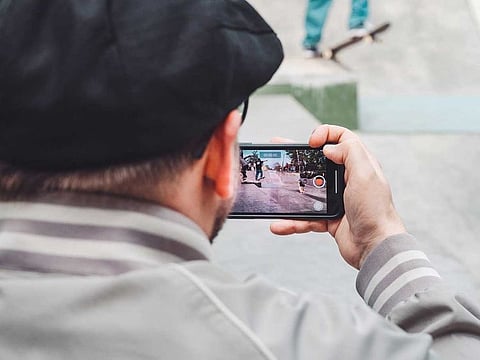UAE joins hands with Interpol’s Operation Liberterra
47 nations come together to crack down on migrant smuggling and human trafficking gangs

Abu Dhabi: UAE has joined forced with 47 countries under Interpol in Operation Liberterra, to crack down on migrant smuggling and human trafficking gangs.
The international joint operation, launched earlier this month, included raids against criminal dens resulted the arrest of 286 individuals all around the world. According to a virtual press conference held by the UAE Ministry of Interior on Monday, 430 victims of human trafficking were saved in the operation.
Law enforcement officials from different countries participated in Operation Liberterra between 5 to 9 July, carrying out some 500,000 inspections at checkpoints and airports as well as at hotspots identified through intelligence and investigations, according to Interpol.
Operation Liberterra
Authorities identified 4,000 irregular migrants originating from 74 different countries. Many of them required medical, psychological and housing assistance and were taken into the care of protective services. Lt Colonel Dana Humaid from the UAE’s Ministry of Interior said that UAE has been able to support Interpol, and this important and successful operation.
“UAE has been an active player in the campaign against human trafficking, and firmly believes in the importance of strong national as well as international efforts to combat human trafficking. Interpol and the international cooperation which underpins it, is one of the key ways we will beat these transnational criminal threats,” Lt Col Humaid said during the press conference.
Four international operations rooms were established in Lyon, Panama, Khartoum and Abu Dhabi, to coordinate international police efforts and information sharing. The operation was in collaboration with United Nations Office on Drugs and Crime (UNODC), EUROPOL, the International Organization for Migration and the Regional Operational Centre Khartoum (ROCK).
“The UAE is honored to have participated in Operation Liberterra and hosting the regional operations room for this operation, covering Asia, Middle East and North Africa.”
Meanwhile, Ilana De Wild, Interpol’s Director of Organized and Emerging Crime, applauded the efforts of the UAE in the operation.
“UAE is one of the driving forces in the operation. When it comes to the fight of organized crime like trafficking of humans, there were impressive results from the operation. Establishing three coordination units across the world helped in the operation,” said De Wild.
In addition, 60 new transnational investigations were initiated. Fake or stolen identity documents remain the golden ticket when it comes to helping people cross borders illegally, with such documents seized on every continent. On the first day of the operation, authorities in Tanzania arrested a Ugandan bus driver carrying a box of 169 forged passports from Kampala to Dar Es Salaam.
Operational highlights
• Algerian authorities dismantled a smuggling group focusing on maritime routes to European coasts. • Colombia dismantled two different criminal organizations, making 22 arrests. While one group was dedicated to smuggling migrants to the US, the other group focused on bringing Cuban and Haitian migrants from Ecuador into Colombia. In addition, two subjects of INTERPOL Red Notices wanted internationally by Spain for human trafficking were arrested. • Authorities in Ecuador arrested 8 suspects who smuggled migrants to the US using a legitimate travel agency as a cover to book flights via Mexico. • Officers in Ghana intercepted two Nigerian suspects accused of running a human trafficking ring between Ghana, Togo, Benin and Nigeria. • Six members of an organized crime group were arrested in North Macedonia. The leader had been working with associates in the Middle East to smuggle migrants from Afghanistan, Bangladesh, Pakistan and Syria to Greece. • Authorities in Sudan rescued 253 victims of human trafficking, arresting 32 suspects. • An organized crime group based in Spain which smuggled migrants by sea from Algeria to the Spanish coast was dismantled. Source: Interpol
UAE role against human trafficking
On an international level, the UAE ratified the United Nations Palermo Protocol in 2009, and became a member of the Bali Process in 2013.
“We have also signed Memorandums of Understanding with several countries to jointly combat human trafficking. UAE was the first country in the region to enact a comprehensive anti-human trafficking law in 2006,” Humaid said.
Additionally, the UAE National Committee for Combatting Human Trafficking was established all the way back in 2007 to coordinate efforts and enforce plans to combat human trafficking at various levels across the country.
“The UAE currently maintains a network of shelters to protect and rehabilitate victims. We also have a dedicated hotline to facilitate the reporting of cases of human trafficking and to enable victims to request protection.”
The Interpol adopted the UAE initiative to raise awareness among various sectors on the margin of field operations. Awareness campaign targets included tourism sector employees, public transport drivers and domestic workers employment offices.









